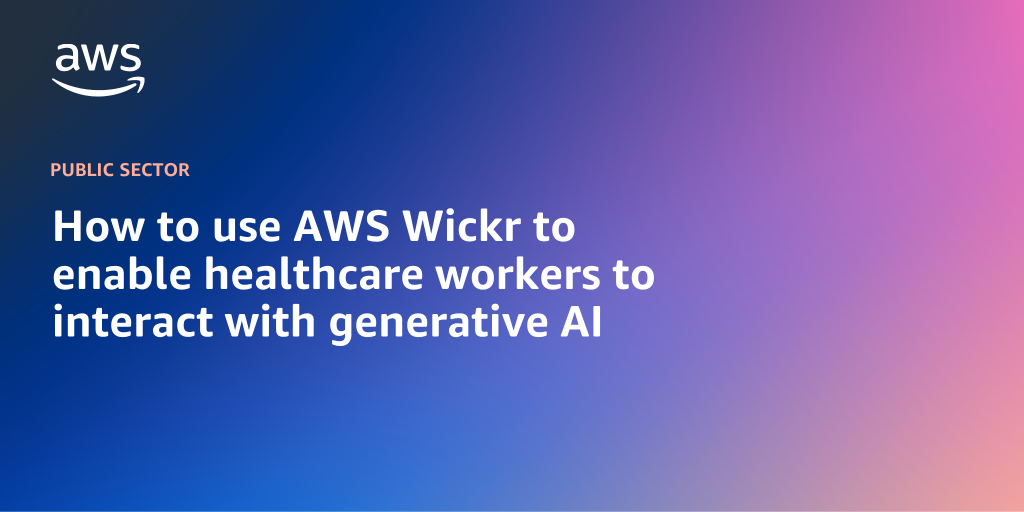AWS Public Sector Blog
Category: AWS Identity and Access Management (IAM)
Using Login.gov as an OIDC IdP with Amazon Cognito user pools
As federal agencies strive to enhance digital services and create a seamless customer experience, integrating robust identity and access management (IAM) solutions has become paramount. Amazon Cognito, a robust user identity management service offered by Amazon Web Services (AWS), provides a secure and scalable solution for managing user authentication and authorization. When combined with Login.gov, a trusted identity platform developed by the U.S. General Services Administration (GSA), federal agencies can unlock a powerful combination that streamlines user access while maintaining the highest levels of security and compliance.
The key components of CISA’s Malcolm on Amazon EKS
Malcolm is a powerful, open source network traffic analysis tool suite created by the Cybersecurity and Infrastructure Security Agency (CISA) to aid public and private sector customers in improving their network security monitoring and incident response. Malcolm is most commonly used for incident response, network monitoring, threat hunting, training, and research, but can be adapted for other use cases. In this post, we introduce you to the key components of Malcolm on Amazon Elastic Kubernetes Service (Amazon EKS).
Simplify firewall deployments using centralized inspection architecture with Gateway Load Balancer
As government organizations transition to Amazon Web Services (AWS), they often seek to maintain operational continuity by using their existing on-premises firewall solutions. Gateway Load Balancer (GWLB) enables seamless integration of these firewall appliances into the AWS architecture, ensuring consistent security policies and minimizing disruptions. This post explores best practices for implementing GWLB to facilitate centralized traffic inspection for both east-west and north-south traffic flows.
Battling the food security crisis with Agents for Amazon Bedrock
The 2024 version of the United Nations (UN) annual report “The State of Food Security and Nutrition in the World” found that about 29.6 percent of the global population, or about 2.4 billion people, were moderately or severely food insecure in 2022, meaning they did not have adequate access to food. Food security can be caused by a number of factors, including poverty, inflationary factors, violent conflict, and the effects of climate change. In this post, we demonstrate how generative artificial intelligence (AI) can help organizations better understand the food security crisis.
4 common IoT protocols and their security considerations
With the Internet of Things (IoT), selecting the right communication protocol ensures efficient data exchange and seamless connectivity between devices and the cloud. With a multitude of IoT protocols available, choosing the one that best suits your specific use case can be challenging. In this blog, we explore four common protocols used to connect IoT devices to the cloud and shed light on when and where to deploy them for optimal results.
Elevating internal customer support at Thorn with AWS: A generative AI use case
Efficiently addressing internal customer support tickets can profoundly impact an organization’s productivity and employee well-being, apart from their ability to focus on the mission at hand. To meet these demands, many nonprofits, such as Thorn, are turning to innovative technology solutions. In this post, we explore how Thorn used Amazon Web Services (AWS) in conjunction with generative artificial intelligence (AI) to revolutionize their internal customer support for organization-wide IT, security, and engineering.
How to use AWS Wickr to enable healthcare workers to interact with generative AI
Amazon Web Services (AWS) Wickr is an end-to-end encrypted messaging and collaboration service with features designed to keep internal and external communications secure, private, and compliant. In this post, we present an architecture that uses the Wickr messaging solution for protected communication with a generative AI backend system, which uses an existing open source project: the AWS GenAI Chatbot. Read this post to learn more.
Improving constituent experience using AWS-powered generative AI chatbots
Generative artificial intelligence (AI) can transform the experience of state and local government constituents. With Amazon Lex, you can design and build sophisticated voice and text conversational interfaces, deploy omnichannel experiences with pre-built integrations to contact center solutions, and pay only for speech and text requests with no upfront costs or minimum fees. This post provides a technical walkthrough for building a generative AI chat-based solution.
University of British Columbia Cloud Innovation Centre: Governing an innovation hub using AWS management services
In January 2020, Amazon Web Services (AWS) inaugurated a Cloud Innovation Centre (CIC) at the University of British Columbia (UBC). The CIC uses emerging technologies to solve real-world problems and has produced more than 50 prototypes in sectors like healthcare, education, and research. The Centre’s work has involved 300-plus AWS accounts across various groups, including external collaborators, UBC staff, students, and researchers. This post discusses the management of AWS in higher education institutions, emphasizing governance to securely foster innovation without compromising security and detailing policies and responsibilities for managing AWS accounts across projects and research.
Documenting the use of Amazon EC2 Auto Scaling groups in DoD
Many Amazon Web Service (AWS) customers in regulated environments such as the U.S. Department of Defense (DoD) struggle to gain security approval to take advantage of the scaling of Amazon Elastic Cloud Compute (Amazon EC2) using its Auto Scaling capabilities. This is often attributed to configuration management, total asset inventory, compliance with agency third-party security tools, and agency authorization documentation. This post provides AWS recommended best practices for implementing EC2 Auto Scaling in DoD environments.









